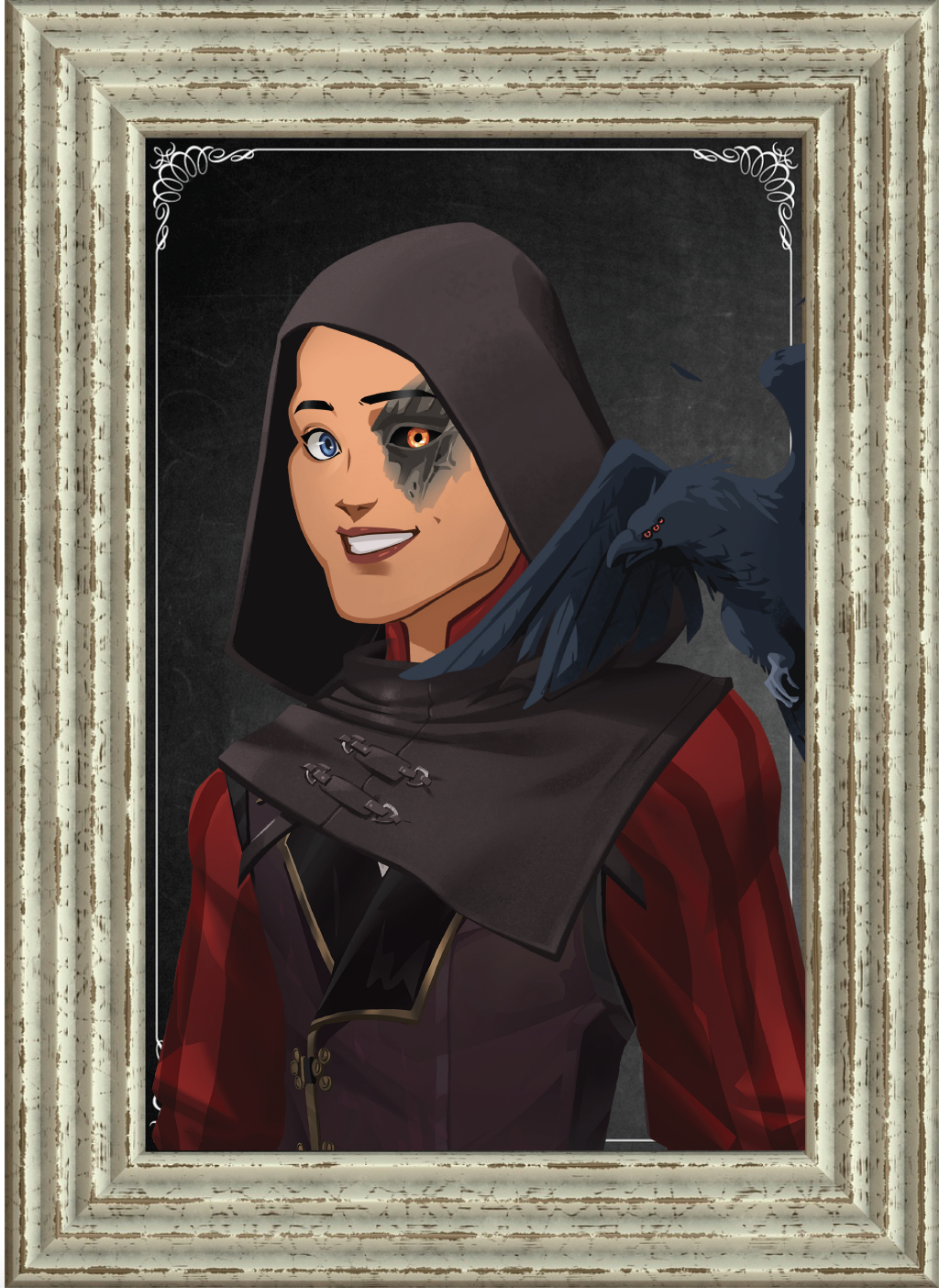The Avatar Art Project: A Playful Reflection of Our Heroic Selves
By Dr. Jennifer Verive
Finding new ways for college students to engage in metacognition – thinking about how and what one thinks – can be a challenge. This is especially so in my “Strategies for Academic Success” course. Often, this course does not gently invite contemplation, but instead demands self-reflection through a battery of psychological assessments, detailed time tracking, and relentless insistence on weekly To Do lists.
Although these traditional activities are ‘tried and true,’ I needed a more appealing process for my first-year undergraduates. I met this challenge by tapping into my personal passion to bring play into the classroom and workplace: I developed a self-reflection involving a highly engaging activity, one in which the Entertainment Software Association reports 65% of adults and 71% of children in the United States participate – videogaming.
Exhibition of students' avatar portraits as hung in the gallery at Western Nevada College in Carson City.
The assignment invited students to create a videogame version of their ‘best self,’ a bespoke hero to guide them on their college journey. Students began by completing the VIA Character Strengths Survey, a positive psychology assessment that identifies one’s top character strengths (such as bravery, judgement, and honesty). Next, students used an avatar creator tool from ultra-popular videogame, League of Legends, to design their personal hero. The online design process required students to make choices about hairstyle, facial features, costume, weaponry, and background. Students were challenged to imbue their hero with their personal character strengths through these design selections and then to write an essay reflecting on this ‘self-making’ process. Here is one example from student Mackenzie Tackett.
Full Essay by Mackenzie Tackett (CEP 121 Fall 2022)
“As I was creating my other me but cooler, I immediately knew that my character had an adventurous personality. With her head held high and smile, we’ll get through hard times. Though my hearing aid was a struggle, it became something extraordinary -- her face has a scarred side with an eye that can see in a bird’s eye view. That is something that came into the spotlight more: My avatar can persevere through many challenges that are nearby, even if they may be soul crushing. She has the ability to maintain a proper stance when brought down to the ground and maintain focus. She is very caring to the heart and able to regenerate lost hope in people’s lives. I see my character struggling with some confidence but someday it will change. Can definitely see her flourish after graduating college, either way.”
Avatar portrait by Mackenzie Tackett.
The results were an unexpectedly intimate exploration of self. I was so delighted by the students’ avatars and essays that I was inspired to produce an exhibit featuring the students’ works. An artist colleague suggested expanding the exhibit to include regional artists. As the exhibit took shape, and I saw how the professional artists created work that reflected on their own idea of “avatar,” I realized that all heroes need support from their communities. Our journeys to self-making are rarely done alone. Like in a game of Dungeons and Dragons, we quest with others whose skills complement our own, who protect us when the path darkens, and who lift our spirits when we’re exhausted from battle.
The avatar art exhibit was displayed at Western Nevada College’s student art gallery August–September 2023. Producing the exhibit turned into a metacognitive journey of my own. I enjoyed the process of creation, integration, and collaboration. I believe that an avatar art exhibit could be a template for accessible and playful self-making events in other communities or with other groups. What might be revealed by an exhibit featuring avatars created by survivors of domestic abuse, or military veterans, or graduates of a naturalization ceremony?
With his concept of facticity, Jean-Paul Sartre, a French philosopher and playwright, reasoned that we have the freedom to choose who we are, to be active participants in our own self-making. To me, this is why we engage in the humanities – we self-make by exploring art, literature, philosophy, and…videogaming!
Tune into watch Jennifer Verive on the Humanities at Play virtual series with Kathleen Kuo, Program Manager, live-streaming on Twitch on December 5, 2023, at 3 pm PT. Tune in here.
Dr. Jennifer Verive is an Industrial-Organizational psychologist, community college instructor, and equity advocate. She supports individuals on their path to self-making by integrating positive psychology and arts and culture. The avatar art project was the inaugural event of her production consultancy, Facticity FoV, which develops creative projects that amplify voice and expand agency for individuals and communities. Dr. Verive is passionate about raising awareness of how videogaming contributes to success in academics and the workplace.
Photos courtesy of Dr. Jennifer Verive.


